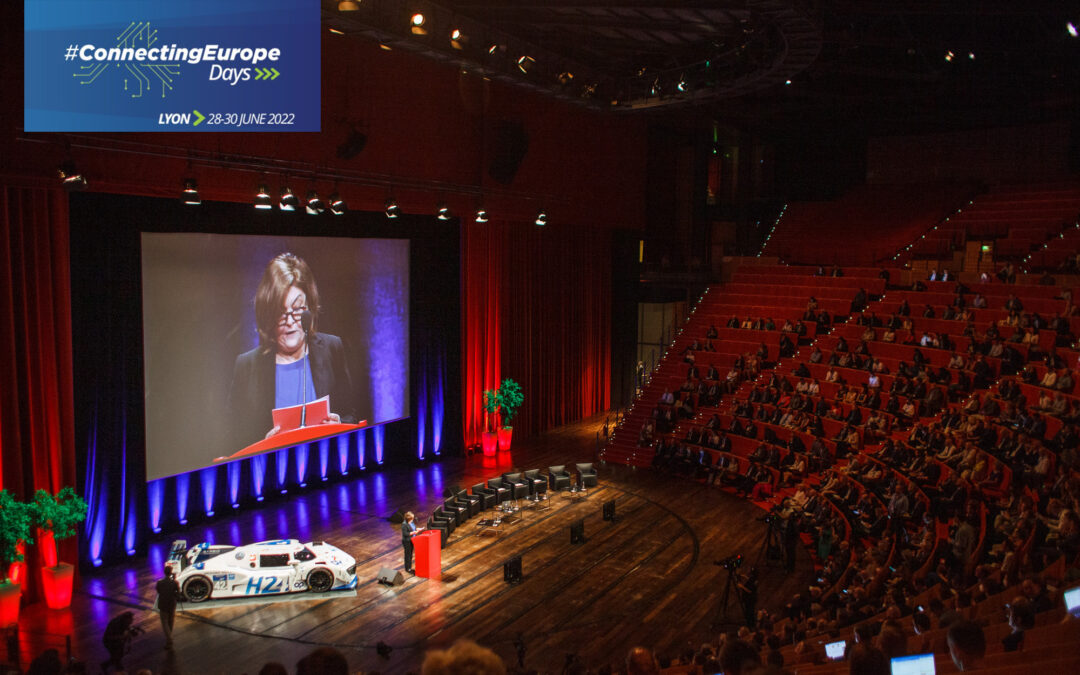Four transformative and transnational EuroRAP projects were on show last week at the ConnectingEurope Days held in Lyon, France from 28-30 June.
ConnectingEurope Days – formerly known as TEN-T Days – is Europe’s mobility flagship event, bringing together politicians, industry representatives and the European Commission to discuss transport and mobility, and their role in achieving the ambitious goals set out in the European Green Deal and Sustainable and Smart Mobility Strategy.
This year’s event attracted more than 2,000 participants from 44 countries and saw the signing of 3 regional agreements and €5.4bn dedicated to 135 projects in sustainable and safe transport infrastructure by the Connecting Europe Facility (CEF).
State-of-the art innovations were on show in 100 exhibits of EU-funded projects and demonstrations of alternative mobility vehicles and automated transport.
Four EuroRAP projects led by the European Institute of Road Assessment (EIRA) were showcased:
- Project SABRINA focuses on road infrastructure safety for cyclists as one of the most vulnerable road users. It tackles cycling infrastructure safety issues on existing, planned, and missing cycling corridors crossing 9 countries in the Danube region. The goal is to improve conditions for road bicycle infrastructure safety in the region by raising the capacities of all relevant national, regional, and local stakeholders to build and improve bicycle infrastructure in a safe and sustainable way.
- Project RADAR implemented learning and transnational cooperation activities to help the relevant organisations in 12 countries of the Danube area to identify risk on their road networks and help them reduce risk systematically by improving road infrastructure and roads layout.
- Project SLAIN fit in the European Commission’s 2010 Communication ‘Towards a European Road Safety Area’ and aimed to contribute to the long-term goal of zero road deaths in 2050. It was a transnational project across 4 European countries aiming to extend the skills and knowledge base of partners in performing network-wide road assessments.
- Project PHOEBE will develop an integrated, dynamic and scalable human-centred predictive safety assessment framework for all road user types. It brings together traffic simulation, road safety assessment, human behaviour, mode shift and induced demand modelling and new and emerging mobility data. PHOEBE’s ambition is to deliver results that will support the UN Global Road Safety Performance Targets and help urban stakeholders set policy, regulation, and consumer awareness initiatives that guide evidence-based investment to reduce road trauma in urban areas.
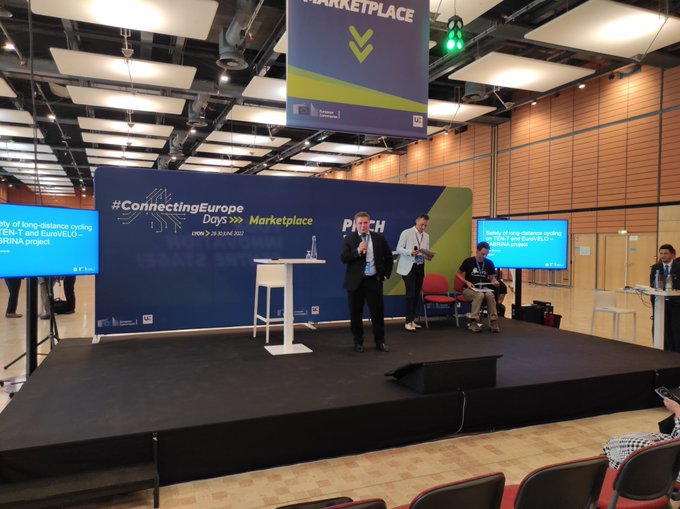
“If we want to improve decarbonization, we need to improve cycling road safety. In order to encourage investments in safe cycling infrastructure, we need to raise awareness of the stakeholders.” said Marko Sevrovic speaking on the SABRINA Project in his 3-minute pitch in the Marketplace.
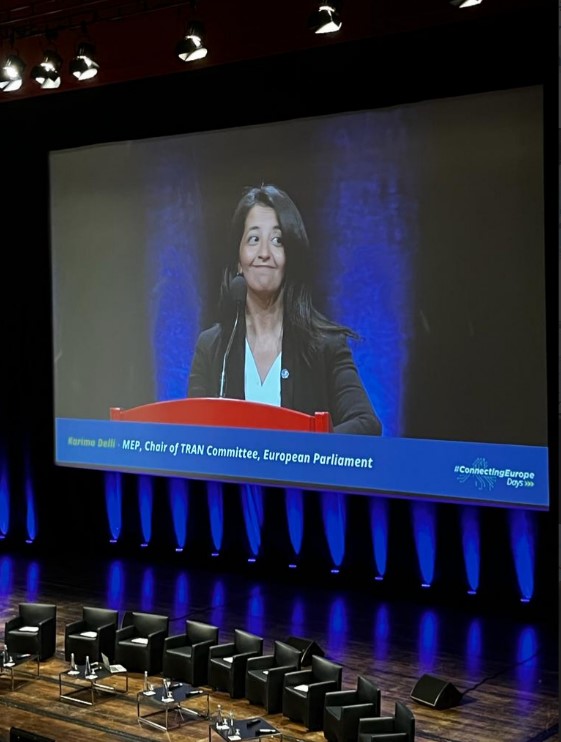
“The bicycle will not be a forgotten sector in Europe anymore,” said Karima Delli, Chair of the Transport and Tourism Committee at European Parliament
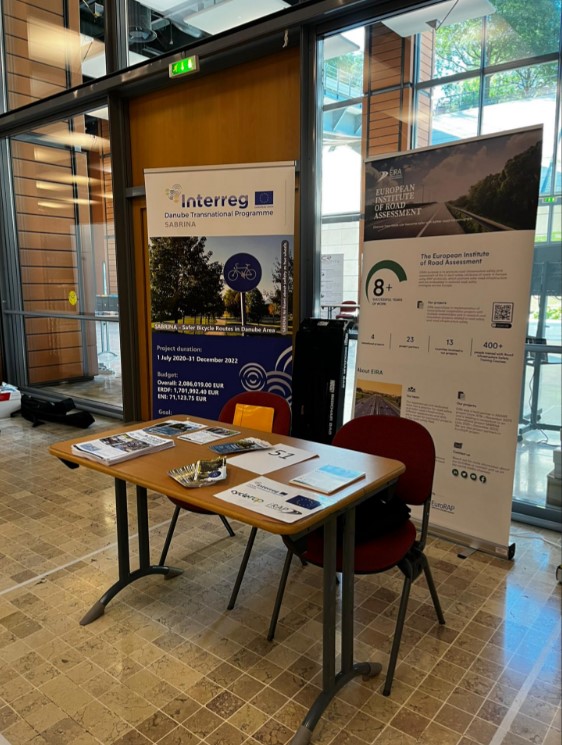
The EIRA Stand at the event
Seven key takeaways were published from the 3-days of proceedings:
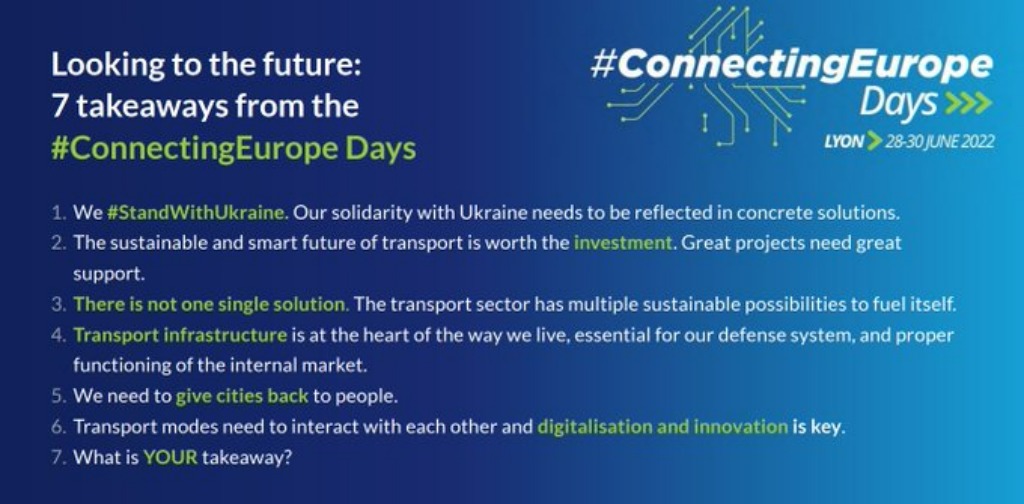
As 2022 is the European Year of Youth, the ConnectingEurope Days had a specific focus on youth voices and view. The event was organised together with the French Presidency of the Council of the EU.
For more information on EuroRAP click here and on the ConnectingEurope event and programme, click here.
Images source: Marko Sevrovic and ConnectingEurope twitter


